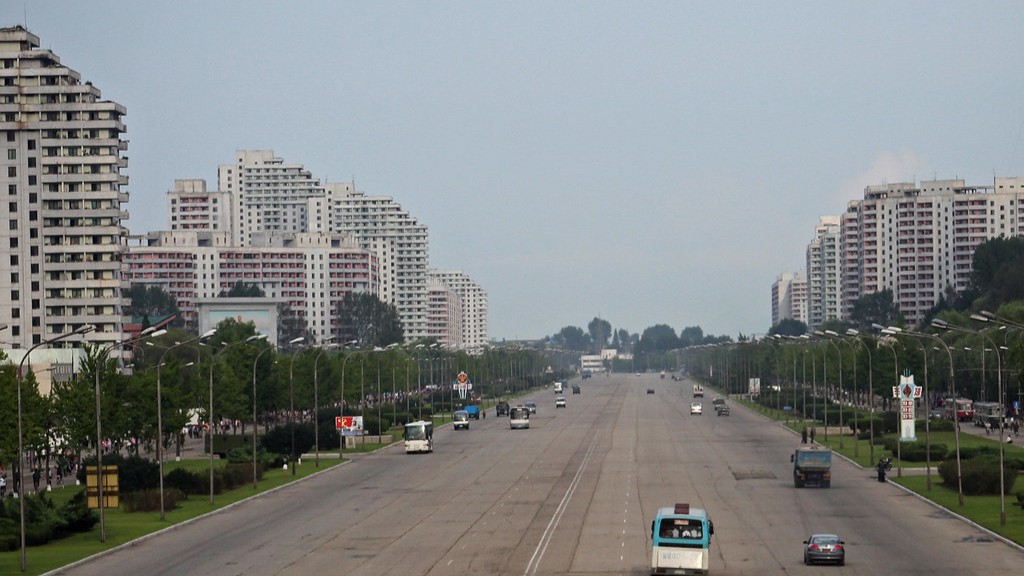The Bible is largely silent on the topic of North Korea specifically. However, there are some principles that can be applied to any nation, including North Korea. For example, God tells His people in the Old Testament to love their neighbor, even if they are enemies (Leviticus 19:18). In the New Testament, Jesus says to love one’s enemies and pray for those who persecute us (Matthew 5:44). These verses show us that we are to extend love and compassion to North Koreans, even if they are our enemies.
The Bible says very little about North Korea specifically. However, there are a few verses that could be applied to the nation as a whole. For example, in Psalm 2:1-3, it says, “Why do the nations conspire and the peoples plot in vain? The kings of the earth rise up and the rulers band together against the Lord and against his anointed one. ‘Let us break their chains,’ they say, ‘and throw off their fetters.'” This could be interpreted as a warning to the leaders of North Korea (or any nation) that they will ultimately fail if they try to go against God’s will. Additionally, in Isaiah 14:24-27, there is a prophecy about the fall of Babylon, which could potentially be applied to North Korea (or any other nation) that is ruled by a tyrannical leader. These verses emphasize that any nation that tries to go against God will ultimately fail, and that the people of that nation will be free from their oppression.
Is the Bible allowed in North Korea?
Christians in North Korea are facing persecution. They are not allowed to meet together to worship or tell others about Jesus. If they are caught with a Bible, singing a hymn, or praying, they can face up to 15 years in a labor camp.
The North Korean government considers religious activities political crimes, because they could challenge the personality cult of Kim Il-sung and his family. This has been confirmed by multiple resolutions passed by the United Nations Commission on Human Rights. Religious activities are seen as a threat to the government, and anyone caught engaging in them is subject to punishment. This includes imprisonment, torture, and even execution.
Does North Korea believe in God
The state of North Korea is officially atheist, although it does guarantee freedom of religion in its constitution. However, religious practice is only allowed if it does not introduce foreign forces, harm the state, or harm the existing social order.
Although North Korea is an atheist state, there are some religions that exist there. The most common are Shamanism and Chondoism, as well as Christianity and Buddhism. It is estimated that about 10% of the population practices one of these religions.
Why is North Korea persecuting Christians?
Christians in North Korea are subject to severe abuse, both because their religion is considered antirevolutionary and antinationalist, and because they are associated with foreign imperialism, particularly the United States and South Korea. Christians are routinely sent to the kwanliso or political prison camps, where they face torture, starvation, and execution.
The practice of Christianity is significant in South Korea, where it revolves around two of its largest branches, Protestantism and Catholicism, accounting for 86 million and 58 million members, respectively. In North Korea, however, the practice of Christianity is marginal.
Is Christianity allowed in China?
As a result, many Chinese Christians worship in unregistered “house churches” which are not sanctioned by the government. These house churches are often subject to raids and harassment from the authorities.
The treaty between China and North Korea is a mutual aid and co-operation treaty. This treaty is currently the only defense treaty either country has with any nation. The treaty was signed in July of 1961 and has been renewed several times. China has been North Korea’s biggest trading partner and has provided economic and military aid to North Korea.
What is Korea’s main religion
The Constitution of Korea guarantees freedom of religion for all citizens. According to a 1995 social statistics survey, 507 percent of Koreans follow a specific religious faith. Buddhists account for some 46 percent followed by Protestants at 39 percent and Catholics at 13 percent of the religious population.
Christianity is one of the largest religions in the world and Kim Kardashian is one of its most famous adherents. Kim was raised in both the Presbyterian and Roman Catholic traditions and has described herself as “really religious.” Christianity teaches that there is one God who created the world and all that exists in it. Jesus Christ is the Son of God who came to Earth to provide salvation for humanity. Christians believe that following Jesus’ teachings and living according to his example is the best way to achieve eternal life with God.
What happens if you practice religion in North Korea?
The constitution of the country provides for freedom of religious belief, but stipulates that religion must not be used as a pretext for harming the State or social order. In July, the UN Secretary-General reported to the UN General Assembly that the country continues to severely restrict the freedom of religion, and that religious minorities are often subject to discrimination and violence.
There are five officially recognized religions in China: Buddhism, Catholicism, Daoism, Islam, and Protestantism. The practice of any other faith is formally prohibited, although often tolerated, especially in the case of traditional Chinese beliefs. This policy is intended to maintain social stability by preventing the spread of beliefs that could potentially challenge the authority of the state.
Which countries do not have freedom of religion
The governments of Saudi Arabia, Pakistan, and Iran impose numerous limits on religious beliefs and practices. These countries have the highest overall levels of restrictions on religion. Society in these countries also imposes many restrictions on religious beliefs and practices.
At the end of the Joseon period, many Koreans embraced Christianity as a way to modernize the country. The monarchy and the intellectuals of the time endorsed the work of Catholic and Protestant missionaries, and many Koreans followed their lead. Christianity became a widely-accepted religion in Korea, and it continues to be so today.
Does North Korea allow freedom of religion?
The constitution of Nepal provides for freedom of religious belief, with the stipulation that “religion must not be used as a pretext for drawing in foreign forces or for harming the State or social order”. In July 2018, the UN Secretary-General reported to the UN General Assembly that there was a “growing body of information that points to the use of religious institutions, beliefs and perceptions to justify, legitimize or incite acts of violence”.
Toyotomi Hideyoshi was a Japanese military leader, politician, and general who lived from 1536-1598. He is most known for leading Japan’s successful unification wars. In 1587, during a time when European countries were conquering and colonizing many areas, including the Philippines near Japan, Toyotomi Hideyoshi issued an edict banning missionaries from Japan. He did this because he saw the religion’s political ambitions, intolerant behavior towards Shinto and Buddhism, and connections to the sale of Japanese people as a threat to his country. While Toyotomi Hideyoshi’s ban on missionaries was eventually lifted, it served as an early example of the challenges Christianity would face when attempting to spread into East Asia.
Warp Up
There is no direct mention of North Korea in the Bible.
There is no specific mention of North Korea in the Bible, but there are some principles that can be applied to any nation, including North Korea. These principles include loving your neighbor, seeking peace, and living out your faith. Applying these principles to North Korea would mean striving for reconciliation and peace with its people, and loving them despite their differences.





